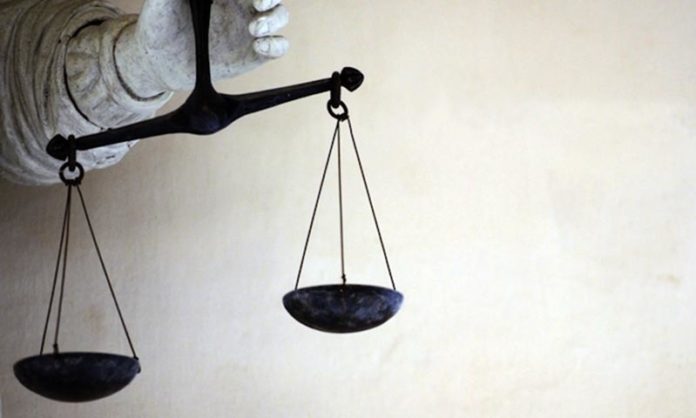ISLAMABAD: The Parliamentary Committee on the National Accountability Law on Monday rejected a proposal of life imprisonment for those to be convicted under charges of white collar crimes.
Ninth meeting of the committee presided over by its Chairman Law Minister Zahid Hamid discussed a draft bill called National Accountability (Amendment) Bill, 2017, presented by MNA Aliya Kamran, along with other agenda of the meeting.
Ms Aliya’s bill demanded that persons to be convicted in corruption cases should be given life imprisonment instead of 7 to 14 years jail.
“Majority of the committee’s members were of the view that life imprisonment will be unjustified with those to be caught in corruption cases,” a member of the committee and Pakistan Tehreek-i-Insaf (PTI) vice chairman Shah Mehmood Qureshi told Dawn after the in-camera meeting.
He said some of the members quoted some rulings of the Supreme Court which were conversant to the proposed bill.
“It was a general view of the committee that one should not be given any concession in corruption cases but on the other hand the law should not be a draconian one,” Mr Qureshi said.
The meeting approved decisions made in the 7th meeting of the committee, including three sections — 19, 20, and 21 of accountability law — related to punishment for corruption, disqualification, voluntary return (VR) and cognisable offences of the accountability bill.
The committee had also reached a consensus that minimum punishment for any person convicted of corrupt practices would be seven years and maximum punishment would be 14 years but not life imprisonment.
It was also decided that any person found involved in corrupt practices would be banned for lifetime from holding any public office even if he/she has returned embezzled amount through voluntary return or plea bargain.
The meeting also discussed how army generals and judges could be brought under the ambit of the proposed law aimed at replacing the National Accountability Bureau (NAB) with the National Accountability Commission (NAC).
It has been learnt that the committee was ‘under pressure’ on the crucial issue of bringing the powerful institutions under the new law.
The existing National Accountability Ordinance, promulgated by military dictator retired Gen Pervez Musharraf in 1999, brought public officeholders, civil servants, politicians and even civilians under the law but exempted the personnel of armed forces as well as judges of superior courts.
However, there are also legal complications due to which the committee is undecided on applying the law on judges and the military persons. “The issue of brining generals and judges under accountability laws will be discussed thoroughly in the coming meetings,” Mr Qureshi said.
Presently judges and army generals do not come within the purview of NAB and other civilian anti-corruption bodies with a plea that both have their own accountability systems in their organisations.
Earlier, chairman of the committee Mr Hamid told reporters that committee has completed most of its work and some controversial issues were yet to be addressed.
He, however, hoped that the committee will complete its task of overhauling the accountability laws soon.





















